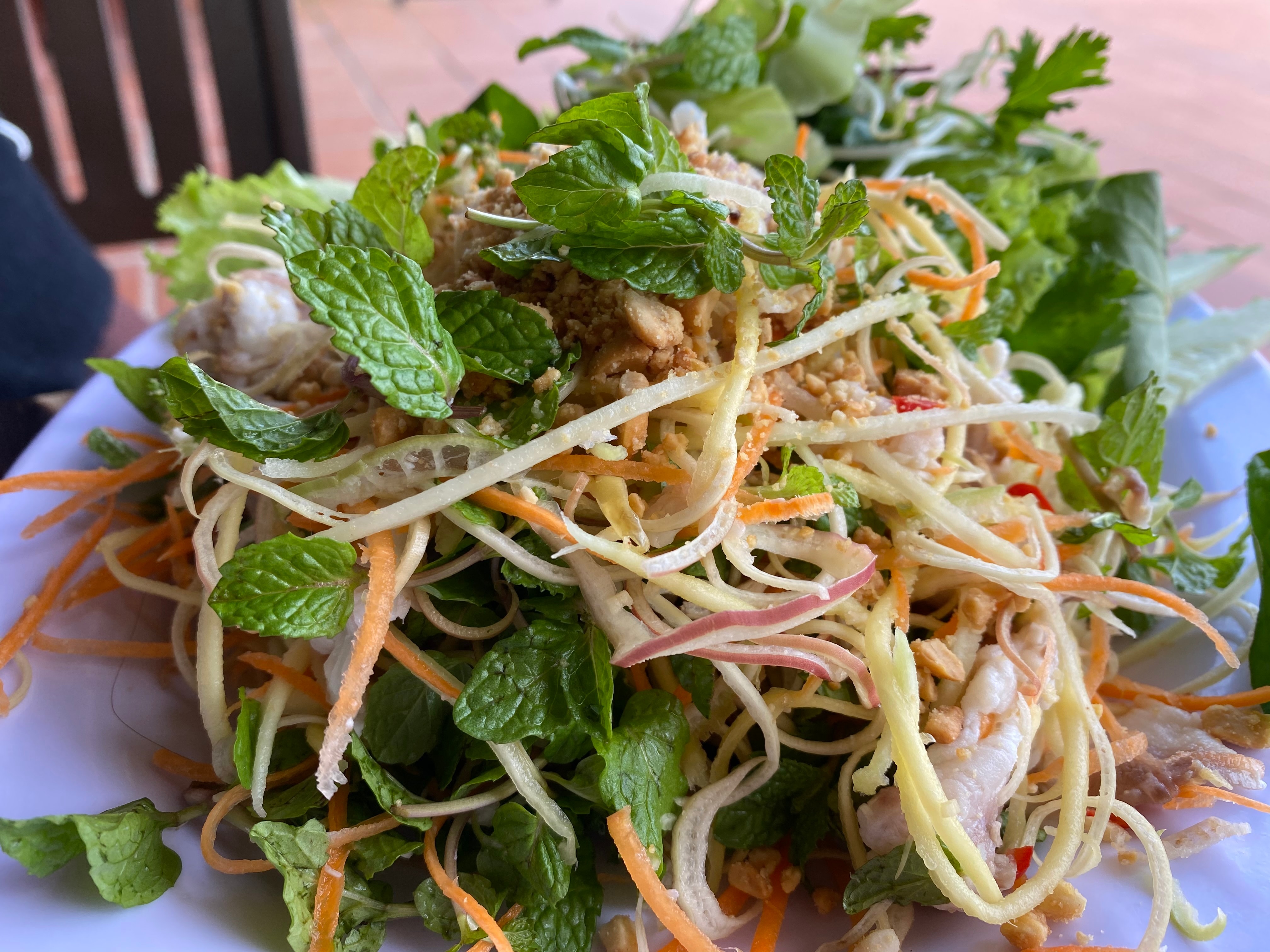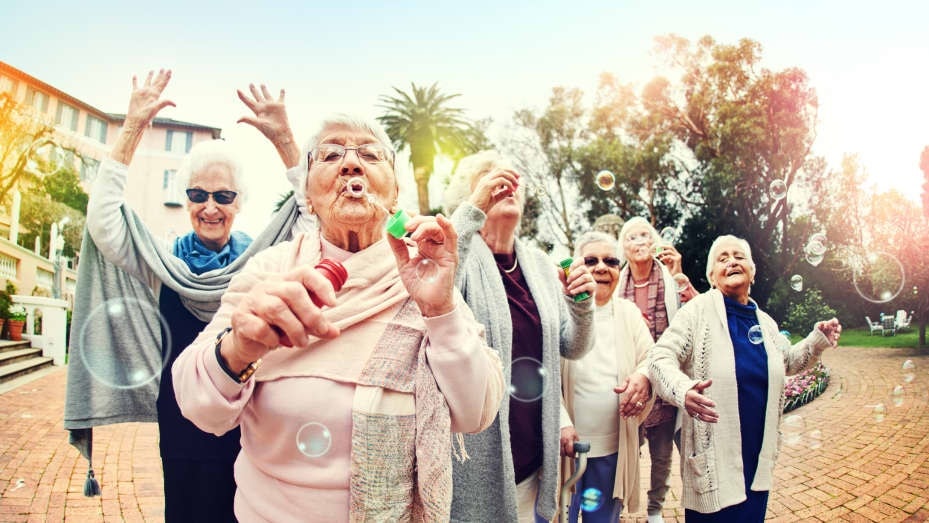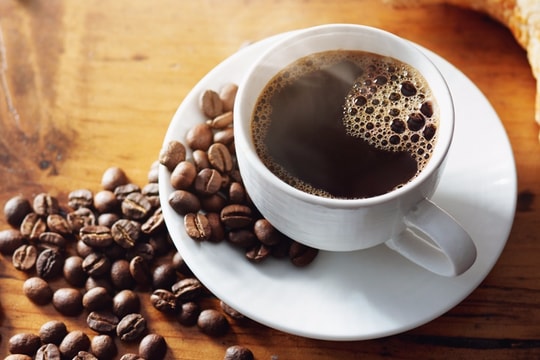6 things the world's longest-lived people have in common
According to longevity researcher Dan Buettner, people who live long and healthy lives in the world's blue zones all have the following six things in common.
There are five regions in the world, known as blue zones, where people live the longest in the world. They are Okinawa (Japan), Ikaria (Greece), Nicoya (Costa Rica), Loma Linda (California, USA) and Sardinia (Italy).
Dan Buettner is a longevity expert who has visited these areas to learn the secrets of their longevity. According to him, there are 6 things that residents of blue zones share.
Specifically:
-Eat a diet of mostly whole foods, plant-based

A natural, healthy diet that includes lots of whole foods, fresh produce... also helps prolong life. Illustration: NP
AboveBlue ZonesBuettner says at least 90% of the diets of people in the blue zones are made up of whole foods and plant-based ingredients. About 65% of their calories come from whole grains, green vegetables, tubers, nuts, and beans.
The most unique aspect of the Okinawan diet is the fresh food every day, with lots of vegetables and fruits. Plants are grown completely naturally, something that is not easy to find even in agricultural countries like Vietnam. The residents also eat meat, but it is seafood and freshly caught seafood.
Unlike other Blue Zones, Okinawa's longevity foods are more modest in quantity, consisting only of brown rice, green tea, shiitake mushrooms and tofu. Researchers have concluded that the Okinawans' long life span is due to their natural and healthy diet.
In the traditional Okinawan diet, about 80% is carbohydrates. Before 1940, Okinawans also consumed fish at least three times a week along with seven servings of vegetables and maybe one or two servings of grains a day.
They also eat two portions of flavonoid-rich soy, often in the form of tofu. They don't eat much fruit, preferring to eat a few eggs a week.
Milk and meat only make up about 3% of their calories. On special occasions, usually around the Lunar New Year, people slaughter their family's pig and eat pork.
-Live with purpose
“People with a sense of purpose in life live about eight years longer than those without,” says Buettner. In Okinawa, Japan, ikigai is the term used to describe this meaning.
Ikigai is a Japanese philosophy that means finding a reason for being. Iki means life in Japanese and gai means value. Your ikigai is your purpose in life or happiness. All Japanese people follow the ikigai philosophy to achieve a state of psychological well-being after retirement.

Happiness is also a natural "medicine" that helps prolong life. Photo: Getty Images
-Religious beliefs and faith
Participating in daily spiritual rituals, meditation sessions, etc. helps to relax and reduce stress. "Seventh-day Adventists pray many times a day," says Buettner.
Spirituality is a bond that binds many centenarians and supercentenarians. National Geographic and Blue Zones interviewed 263 people aged 100 and older, and all but five belonged to a religious community. The follow-up study found that attending religious services four times a month can add at least four years to your life.
That fits with the findings of a much larger, long-term study that found regular attendance at religious services may increase longevity.
A team at the Harvard TH Chan School of Public Health examined data collected over a 20-year period from nearly 75,000 middle-aged American female nurses who were free of cardiovascular disease and cancer when the study began.
The results showed that, regardless of race or ethnicity, people who attended a temple, synagogue, mosque or church at least once a week had a 33% lower risk of death from all causes — especially heart attacks, strokes and cancer — than those who never went.
-Avoid overeating
“They don’t have electronics in the kitchen, they eat with their family, and they tend to load up on calories early in the day and taper off in the late afternoon or early evening,” says Buettner.
To control their eating habits, people on the island of Okinawa apply the Hara Hachi Bu advice. According toCleveland Clinic, Hara Hachi Bu is a Japanese term that means "Eat until you are 80% full".
When looking at portion sizes, decide how full you can feel, then estimate what 80% of that looks like. Maybe that's two-thirds of the food on your plate. The goal is to leave you feeling satisfied and satisfied, not full.
Also, remember that speed can contribute to overeating. It takes 20 minutes for your stomach to empty. So slow down and give your body time to register how much you’ve eaten. If you eat quickly and stop when you think you’re 80% full, you could be 100% full without even realizing it.
-Family first
In blue zones, family members tend to stay close together, even as they age. “If you keep your elderly parents close by instead of putting them in a nursing home, that means they can live two to six years longer,” he says.
-Invest in relationships
Married people tend to live longer than single people, with men living for two and a half years and women for a little less, researchers say. And they also have a higher chance of reaching 100.
Deep platonic friendships can have a similar effect. Friendships are really important to people in the blue zones.




